Tetanus is caused by a germ called Clostridium tetani.
This germ produces a dangerous #toxin that makes your muscles painfully contract on their own & become rigid.
This man had neck stiffness & lockjaw from tetanus;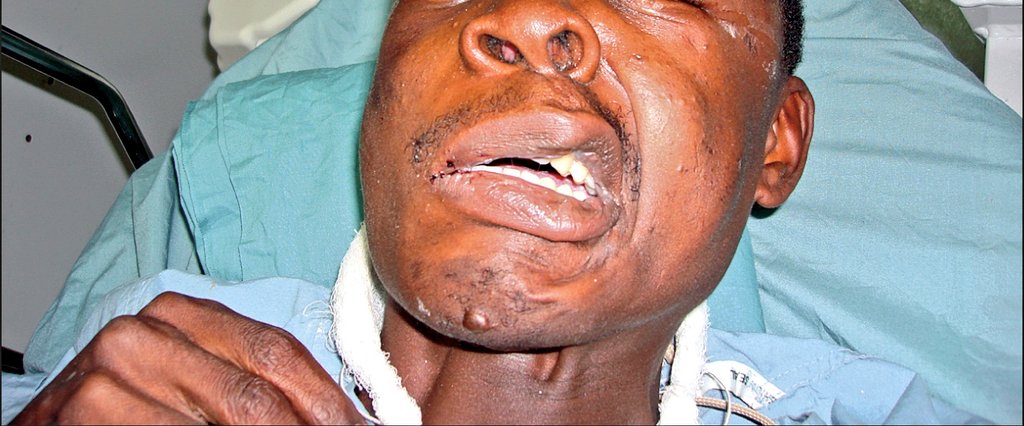
This germ produces a dangerous #toxin that makes your muscles painfully contract on their own & become rigid.
This man had neck stiffness & lockjaw from tetanus;

Tetanus germ lives mainly inside the soil & animal feces. It lives there for years.
When it has a chance, it enter your body through:
- Wounds contaminated with soil or feces, or
- Punctures by nonsterile needles (like some injecting illegal drugs, tattooing or body piercing)
When it has a chance, it enter your body through:
- Wounds contaminated with soil or feces, or
- Punctures by nonsterile needles (like some injecting illegal drugs, tattooing or body piercing)
Sadly, sometimes the injury is so small that the person doesn't feel It.
So they don't go to see a doctor, & won't even remember when it happened.
Injuries that involve dead skin are more likely to cause tetanus e.g. burns, frostbite, gangrene, or crush injuries
So they don't go to see a doctor, & won't even remember when it happened.
Injuries that involve dead skin are more likely to cause tetanus e.g. burns, frostbite, gangrene, or crush injuries
Occasionally, tetanus occur when a woman's womb is damaged during an unsafe abortion or childbirth.
In some places, due to traditional beliefs, a newborn's umbilical stump is dressed with soil, animal dung, toothpaste, etc, which contaminate the stump causing #NeonatalTetanus.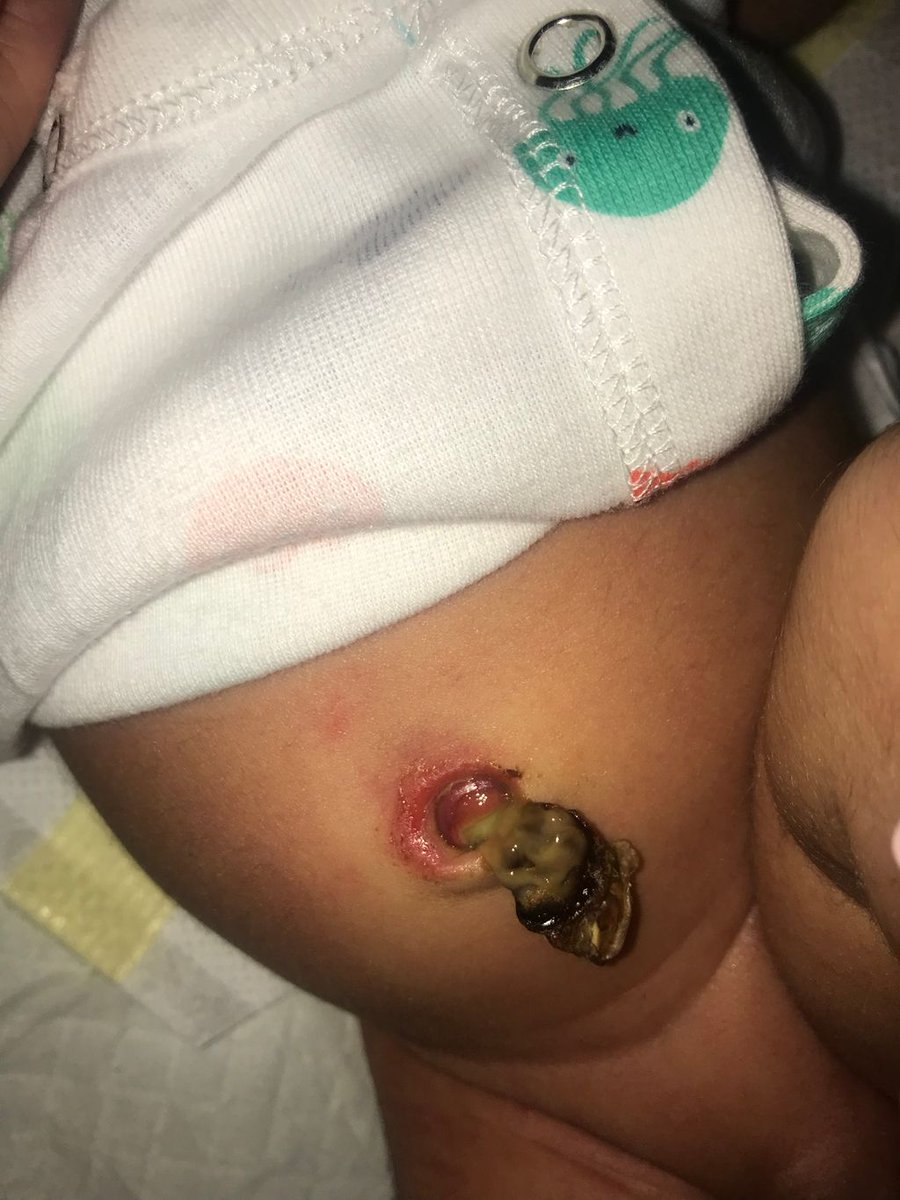
In some places, due to traditional beliefs, a newborn's umbilical stump is dressed with soil, animal dung, toothpaste, etc, which contaminate the stump causing #NeonatalTetanus.

Tetanus bacteria is tricky.
It produces #spores, which are inactive or dormant.
These spores enable it to survive when environmental conditions are difficult.
But as soon a conditions are favorable, the spores grow into bacteria.
It produces #spores, which are inactive or dormant.
These spores enable it to survive when environmental conditions are difficult.
But as soon a conditions are favorable, the spores grow into bacteria.
Once inside your body, tetanus starts to produce toxins which travel throughout the body, stopping your #nerves from sending vital signals to other nerves & making your muscles to stiffen on their own.
Tetanus kills mainly by causing #asphyxia or sudden heart death.
Asphyxia is insufficient supply of oxygen to the body due to abnormal breathing.
That's why a tetanus patient might end up needing artificial ventilation to stay alive.
Asphyxia is insufficient supply of oxygen to the body due to abnormal breathing.
That's why a tetanus patient might end up needing artificial ventilation to stay alive.
There's no cure for tetanus.
Treatment only consists of
- wound care
- medications to ease symptoms &
- supportive care
No definitive cure! So it's safer to stay protected.
Treatment only consists of
- wound care
- medications to ease symptoms &
- supportive care
No definitive cure! So it's safer to stay protected.
3. Get medical attention if you have a deep & dirty would, esp if you're unsure of your last TT vaccine
4. Once you've stopped he bleeding, leave unclean wounds open to avoid trapping bacteria in the wound with a bandage.
5. Help educate others.
4. Once you've stopped he bleeding, leave unclean wounds open to avoid trapping bacteria in the wound with a bandage.
5. Help educate others.
Do your best to update your tetanus immunization. You never can tell when you'll sustain an injury!
The key word is PREVENTION!
Spread this message to others.
The key word is PREVENTION!
Spread this message to others.
Note:
Tetanus is vaccine-preventable i.e. it happens only to people who have not been vaccinated or don't have their vaccinations up to date.
Tetanus is infectious but not contagious meaning you won't contract it from someone who has the disease.
Tetanus is vaccine-preventable i.e. it happens only to people who have not been vaccinated or don't have their vaccinations up to date.
Tetanus is infectious but not contagious meaning you won't contract it from someone who has the disease.



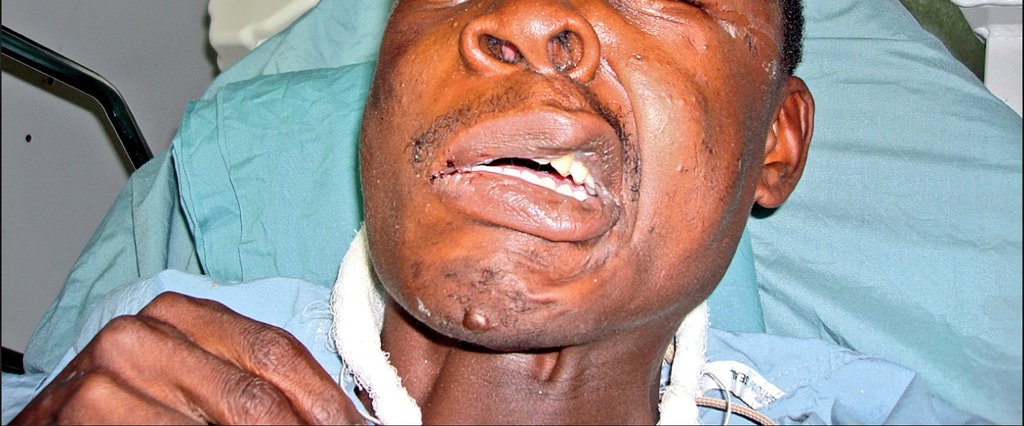
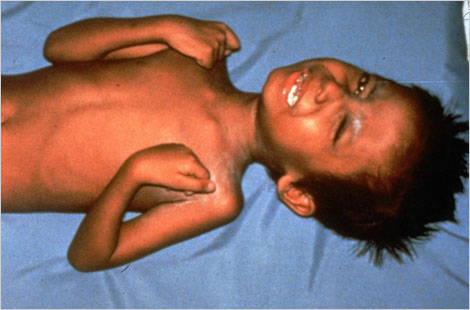
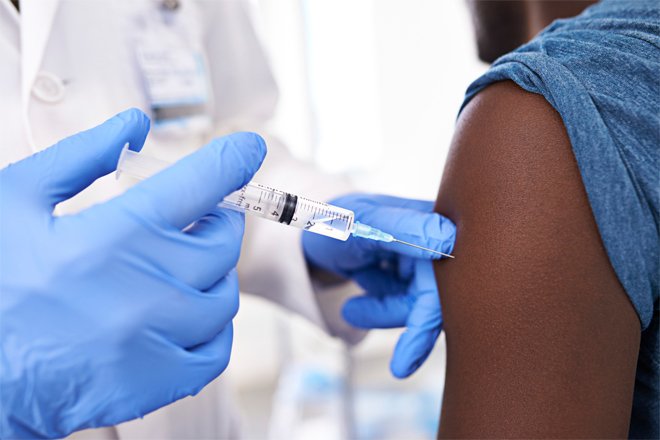
Post a Comment